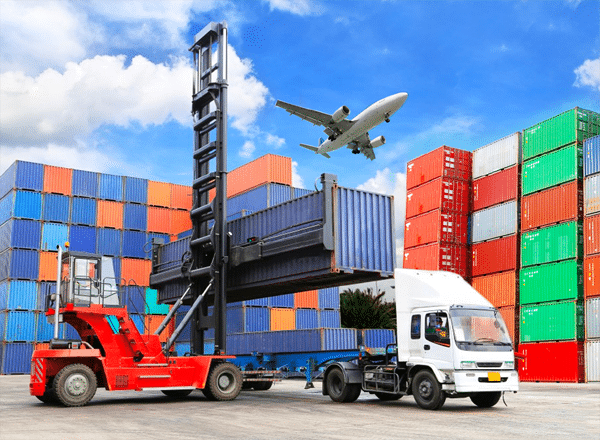The Growing Importance of Freight Services in a Globalized Economy
Introduction:
In an increasingly interconnected and globalized world, the efficient movement of goods across borders and continents has become a critical factor for businesses and economies alike. Freight services have emerged as a vital component of the supply chain, enabling the transportation of goods on a global scale. This article delves into the significance of freight services, highlighting relevant statistics and considering diverse perspectives.

The Importance of Freight Services:
Freight services serve as the backbone of international trade, facilitating the movement of goods between manufacturers, suppliers, and consumers. Here are some key reasons why freight services are crucial in today’s business landscape:
- Global Trade: According to the World Trade Organization (WTO), the total value of merchandise exports worldwide reached $19.5 trillion in 2018, emphasizing the magnitude of global trade. Freight services play a pivotal role by ensuring seamless transportation across vast distances, enabling businesses to access international markets and consumers.
- Economic Growth: Efficient freight services are instrumental in driving economic growth and competitiveness. A study by the International Chamber of Commerce (ICC) estimates that trade-related logistical inefficiencies cost countries between 2% and 15% of their GDP. By leveraging freight services, businesses can optimize their supply chains, reduce costs, and enhance their market reach, ultimately contributing to economic growth.
- Job Creation: Freight services generate significant employment opportunities across the globe. The International Transport Forum (ITF) estimates that the freight transport sector employed around 55.6 million people globally in 2018. These jobs span various roles, including truck drivers, logistics coordinators, warehouse workers, and customs brokers, creating livelihoods and contributing to local economies.
- Sustainable Development: The freight industry has been increasingly focused on adopting sustainable practices. Initiatives aiming to reduce emissions and optimize fuel consumption are gaining momentum. The International Air Transport Association (IATA) reports that the air cargo sector has reduced its CO2 emissions by 40% since 1990, showcasing the industry's commitment to sustainability.
Consideration of Diverse Perspectives:
While freight services contribute to economic growth and global trade, it is important to acknowledge certain challenges and concerns associated with the industry. Understanding diverse perspectives allows for a comprehensive analysis:
- Environmental Impact: Freight services, particularly air and sea transport, can have significant environmental repercussions due to emissions and carbon footprint. Balancing economic growth with sustainable practices is a key challenge for the industry. Solutions like greener technologies and alternative fuels need to be explored to mitigate the environmental impact.
- Infrastructure Development: The efficient functioning of freight services relies on robust infrastructure, including ports, railways, roads, and warehouses. Sustainable investments in infrastructure development are crucial for ensuring smooth and streamlined logistics operations. Governments and private sector organizations must collaborate to address infrastructure gaps and enhance trade facilitation.
Conclusion:
Freight services are an integral part of the global economy. They enable businesses to connect with international markets, boost economic growth, create employment opportunities, and contribute to sustainable development. The industry must strive for innovative solutions to minimize its environmental impact while ensuring efficiency and reliability in the movement of goods.
Sources:
1- World Trade Organization: https://www.wto.org/index.htm
2- International Chamber of Commerce: https://iccwbo.org/
3- International Transport Forum: https://www.itf-oecd.org/
4- International Air Transport Association: https://www.iata.org/
